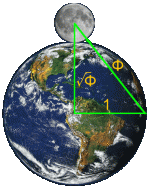excreationist
Married mouth-breather
Here is a recent video from "Quantum Gravity Research" (not much new information)
[YOUTUBE]https://www.youtube.com/watch?v=vJi3_znm7ZE[/YOUTUBE]
It criticises String Theory saying it has "kind of failed" (9:10) and has "never produced any successful predictions".
It talks about E8 and their "friend" Garrett Lisi.... here is an E8 explorer he has been working on:
[YOUTUBE]https://www.youtube.com/watch?v=WAIw123DIcI[/YOUTUBE]
http://www.deferentialgeometry.org/epe/
I think E8 predicts some particles.
The founder of QGR, Klee Irwin,
https://rationalwiki.org/wiki/Klee_Irwin
is said to be "a pseudoscience proponent and fraudster".
QGR has 130 videos on Youtube
https://www.youtube.com/channel/UCUyk0KLo7JPLCCh4oRNLzsQ
and 10 staff members:
https://www.quantumgravityresearch.org/about-quantum
What do people here think about E8, String Theory, QGR and possible contenders for a theory of everything (or at least combine gravity with QM)?
[YOUTUBE]https://www.youtube.com/watch?v=vJi3_znm7ZE[/YOUTUBE]
It criticises String Theory saying it has "kind of failed" (9:10) and has "never produced any successful predictions".
It talks about E8 and their "friend" Garrett Lisi.... here is an E8 explorer he has been working on:
[YOUTUBE]https://www.youtube.com/watch?v=WAIw123DIcI[/YOUTUBE]
http://www.deferentialgeometry.org/epe/
I think E8 predicts some particles.
The founder of QGR, Klee Irwin,
https://rationalwiki.org/wiki/Klee_Irwin
is said to be "a pseudoscience proponent and fraudster".
QGR has 130 videos on Youtube
https://www.youtube.com/channel/UCUyk0KLo7JPLCCh4oRNLzsQ
and 10 staff members:
https://www.quantumgravityresearch.org/about-quantum
What do people here think about E8, String Theory, QGR and possible contenders for a theory of everything (or at least combine gravity with QM)?


